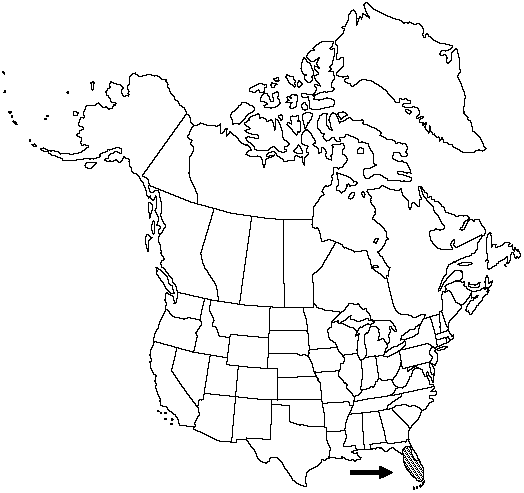Pecluma dispersa
Amer. Fern J. 73: 114. 1983.
Stems 4–6 mm diam.; scales blackish, linear-lanceolate. Leaves erect or arching. Petiole black, 1/4–1/3 length of blade, hairs short, mostly simple, multicellular; scales deltate to linear, base broadly hastate-lacerate. Blade narrowly ovate, 20–70 × 5–11 cm; base narrowly truncate; apex acute. Segments narrowly ovate to linear, 3–5 mm wide; segments at base of blade abruptly reduced, usually reflexed. Veins 1–2-forked. Sori round or oval, sporangia with 32 spores. n = 2n = 111, apogamous.
Phenology: Sporulating all year.
Habitat: Usually on limestone outcrops, occasionally epiphytic in hammocks
Elevation: 0 m
Distribution

Fla., Mexico, West Indies, Central America, South America to s Brazil.
Discussion
Pecluma dispersa frequently occurs as widely scattered clusters of small juveniles on mossy limestone, arising vegetatively from exposed roots of older plants.
Selected References
None.